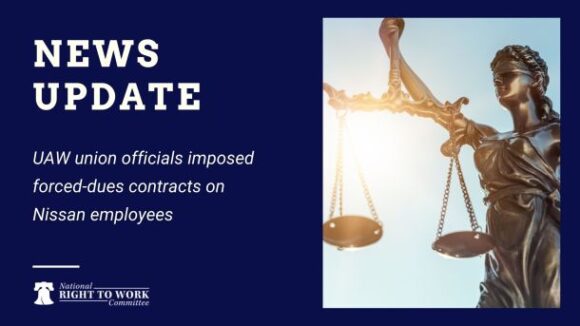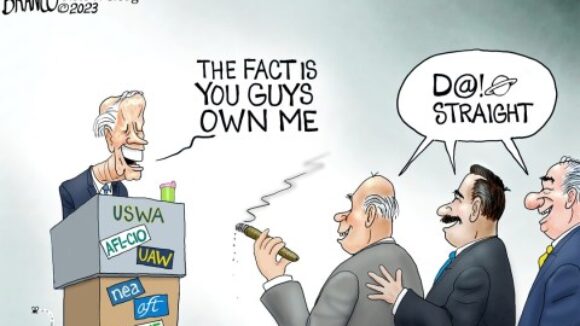Somerset, NJ, Nissan Parts Distribution Center Employees File Petition for Vote to Kick Out UAW Union
UAW union officials imposed forced-dues contracts on Nissan employees

Most politicians don’t have the stomach to take on the union bosses but with New Jersey on the brink of bankruptcy, Gov. Chris Christie did. David Disalvo takes a look at the ongoing battle between a governor trying to reign in spending and Big Labor’s intent on busting the budget.
Public-sector unions thus distort the labor market, weaken public finances, and diminish the responsiveness of government and the quality of public services. Many of the concerns that initially led policymakers to oppose collective bargaining by government employees have, over the years, been vindicated.
As a result, it is difficult for defenders of public-sector unions today to make a convincing case that such unions benefit the public at large. Their argument has basically been reduced to three assertions. One is that most public employees live modest lives, and so criticizing efforts to improve their lot distracts attention from wealthy CEOs and Wall Street bankers who are the real culprits behind today’s economic woes. Another is that the unions defend the dignity of public service, thereby preserving a middle class that would otherwise be plunged — through conservatives’ efforts to privatize such work — into the vicious race to the bottom that now plagues the private sector. Finally, government-workers’ unions help advance leftist politics by keeping the labor movement hobbling along.
To be sure, there is some merit to each of these arguments, though none is especially convincing. But even if these claims were completely true and obvious, they would not offer sufficient reason to put up with the other, manifestly negative consequences of public-sector unionism.
“At some point,” New Jersey governor Chris Christie said in a February speech to his state’s mayors, “there has to be parity between what is happening in the real world and what is happening in the public-sector world.”

UAW union officials imposed forced-dues contracts on Nissan employees

Glacier Northwest Inc. v. International Brotherhood of Teamsters Local 174 has been brought before the Supreme Court.

Joe Biden’s record proves he’s bought and paid for by union bosses. But persistent Right to Work opposition can stop him from fulfilling his paymasters’ most destructive dreams.